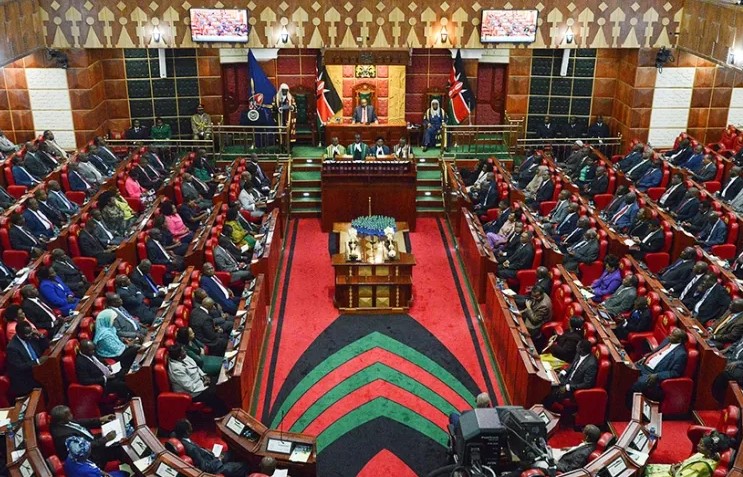The National Assembly has invited the public and stakeholders to submit their written views on the Finance Bill 2024 by Monday, March 18, 2024, at 5 p.m.
In a statement on Wednesday, the Departmental Committee on Finance and National Planning stated that the Bill sponsored by Kuria Kimani, MP for Molo Constituency and chair of the National Assembly Finance Committee, was published on May 9, 2024, and read for the first time on May 13, 2024.
The Cabinet Secretary for the National Treasury and Economic Planning submitted it to the National Assembly.
“The proposed legislation contains proposals relating to revenue-raising measures, including liability to and collection of taxes. The Bill also amends other pieces of legislation relating to fees, levies and management of public funds.”
Among the legislation the proposed law seeks to amend are the Income Tax Act (Cap. 470), the Value Added Tax Act (Cap. 476), the Excise Duty Act (Cap. 472), the Tax Procedures Act (Cap. 469B), and the Miscellaneous Fees and Levies Act (Cap. 469C).
Did you read this?
The tax proposed in the new Finance Bill 2024 seeks to introduce an annual tax that will be paid when motor vehicle insurance cover is acquired.
Set at a minimum of Kes 5,000 and a maximum of Kes 100,000, the levy will be 2.5 percent of the vehicle’s value.
It also proposes a 16 percent VAT on bread, which will skyrocket the commodity's price. Kenya’s favorite breakfast meal will rise by at least Kes 10.
Currently, bread is VAT-zero-rated. The inclusion of 16 percent will raise the prices from 60 to 70.
The new proposals suggest raising excise duty on fees for mobile money transfer services such as M-Pesa and money transfer charges in banks and Saccos from 15 to 20 percent.
Furthermore, the cost of beer is set to decrease after the new bill proposed an excise duty of Kes 142.44 per liter, down from Kes 253, while the cost of stronger spirits and whiskey is set to rise as the excise duty is set to rise from Kes 253 to Kes 356.
The government says the new tax is designed to provide a steady revenue stream to support the government’s ambitious development projects.









